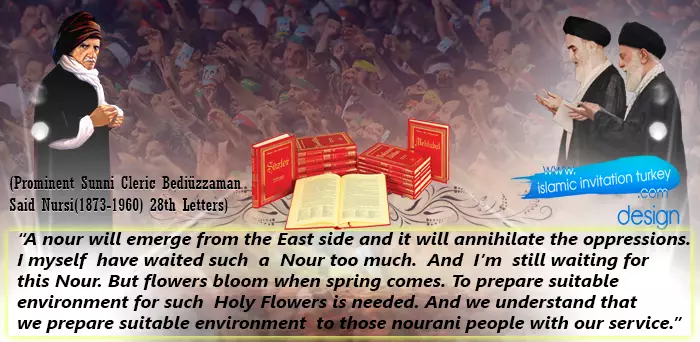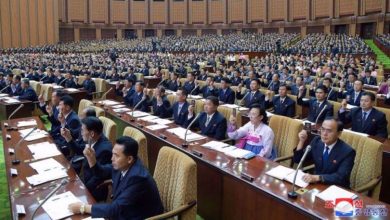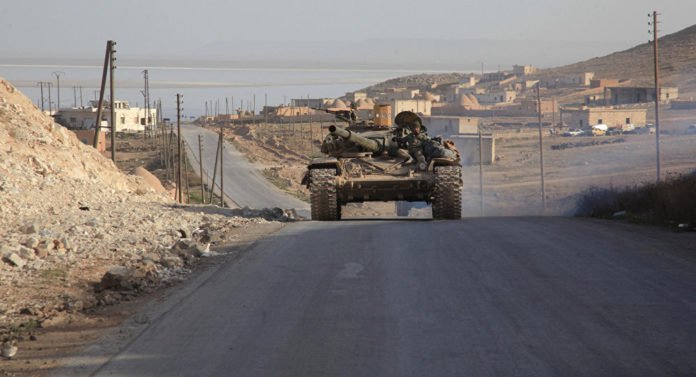Ustad Bediuzzaman( 1873- 1960) gave certain news that in the future Islam, the Islamic Revolution in Iran and the truths of the Qur’an would prevail

While visiting Damascus in early 1911, Bediuzzaman Said Nursi was invited by the religious authorities there to give a sermon in the historic Umayyad Mosque. On their insistence he agreed, and delivered a sermon to a gathering of close on ten thousand, including one hundred scholars. It met with such a response that the text was afterwards printed twice in one week.
In this sermon (1911), Bediuzzaman gave certain news that in the future Islam, the Islamic Revolution in Iran and the truths of the Qur’an would prevail, and he provided clear proofs that this would occur.
Not only did he demonstrate how the Islamic world could heal itself through taking the medicines of the Qur’an, but he also pointed out a number of developments in the West, among them the stirrings of a genuine search for the truth, that indicated to a forthcoming acceptance of Islam. With extraordinary foresight, Bediuzzaman predicted that, as all the evidence suggested, Islam would in the near future gain ascendancy. However, the two World Wars and a period of despotism both in Turkey and elsewhere in the Islamic world, which he had not foreseen, delayed matters. That is to say, as the developments of which he gave news in 1911 slowly unfold, this sermon, together with its diagnosis of some of the fundamental ills afflicting the Islamic world and the remedies from the Holy Qur’an that it points out, continues to be of the greatest relevance for Muslims of the present day.
As Bediuzzaman Said Nursi demonstrates, since Islam relies on reason and reasoned proof, it is the religion of the present and the future, for this is the age of science, technology and reason. This fact is being understood now by many who realize that they cannot live without a true and complete religion. The causes for the decline of the Islamic world and its material backwardness in comparison to the West should be sought in the failure of Muslims to adhere to the teachings and truths of the Holy Qur’an and Islam. Just as Islam provides for the material progress of man, and the indeed urges him towards it, so does it provide for man’s true progress and development in moral and spiritual matters. This combination forms the basis of true civilization.
Since Western civilization is not based on truth and justice, but on the principles of force, conflict, and aggression, the evils of civilization predominate over its virtues. If man is to survive he will embrace Islam, for he understands now his need for true civilization, founded on the positive truths of revelation, the Holy Qur’an and the Shari‘a of the Prophet Muhammad (PBUH), in which the virtues of progress predominate, and the benefits of civilization may be profited from.
In the form of “Six Words,” Bediuzzaman describes a number of those positive truths of Islam, which form the cure for the grievous sicknesses besetting the Muslim community. Hope, courage, honesty, love and brotherhood, selfsacrifice, awareness of the luminous bonds uniting the believers, mutual consultation. These are not qualities that are unimportant or may be dispensed with in the face of the difficulties or threats; on the contrary, they form the very foundation of Muslim society. As the truths of the Qur’an and Islam become increasingly apparent in this age of scientific discovery and technological advance, the lessons of Bediuzzaman Said Nursi’s prophetic sermon of 1911 increase in significance. The civilization of the future is true civilization; the civilization of Islam. It will be achieved through Muslims heeding these lessons, and rebuilding their society on the foundations of belief, and on the morality of Islam.
Besides the two original printings of the Sermon, a further edition of the Arabic text was published in Istanbul in 1922. In the 1950’s it was translated into Turkish by the author, and then published as part of the Risale-i Nur Collection. Bediuzzaman expanded to some degree this Turkish edition, which is the source of the present translation, in order to address directly contemporary Muslims also. For this reason there are references to dates subsequent to 1911, and to other parts of the Risale-i Nur.
Bediuzzaman added other pieces to the Turkish edition, taken from various of his works, which all illustrate aspects of the main theme of his sermon, that not only Muslims, but all mankind, will find happiness and salvation only through applying the principles of the Qur’an in their social and political lives. It will also be useful for readers to bear in mind that Bediuzzaman saw the achievement of this through the spread of the healing light of the Qur’anic teachings on the truths of belief exemplified in the Risale-i Nur and their acceptance, rather than as a result of political activity.




